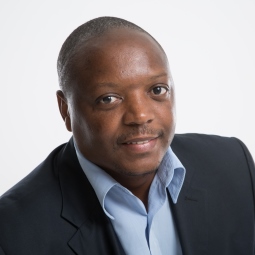CSIR heeds call for more young people in photonics industry
The National Development Plan identifies the science and technology sector as one of the key areas that needs to be developed before 2030. There is also an increasing need to accelerate the number of young people embarking on a career in science, technology, engineering and mathematics (STEM), as well as doctoral graduates.
The National Development Plan identifies the science and technology sector as one of the key areas that needs to be developed before 2030. There is also an increasing need to accelerate the number of young people embarking on a career in science, technology, engineering and mathematics (STEM), as well as doctoral graduates.
In accordance with this mandate, Photonics Initiate of South Africa (PISA), a programme that is fully funded by the Department of Science and Technology (DST) and the Council for Scientific and Industrial Research (CSIR), established a six-month experiential learning programme that is currently benefitting 11 students from the Tshwane University of Technology (TUT).
“The experiential learning programme came about as a result of the industrial physics course, which was initiated by PISA three years ago as a response to the country’s need for skilled young people in the photonics industry,” said Dr Sandile Ngcobo, Senior Researcher and coordinator of the experiential learning programme.
According to recent employment statics, there has been an increase in the unemployment rate with the most sought after skills falling under the STEM category.
“Our partnership with PISA and TUT has provided the CSIR with the opportunity to create a platform for young minds to apply what they have learnt in a practical environment. Furthermore, as an organisation that thrives on ideas that work, we hope to groom innovative young people in the field of science and technology who will be game-changers and great contributors in developing our socio-economic landscape” said Hardus Greyling, Commercialisation and National Programs Manager responsible for coordinating the PISA program.
Currently, all student trainees under this initiative are assigned to an experienced scientist or researcher who is responsible for guiding and exposing each student to technical and research-based work. Each student is also provided with a monthly stipend and access to the Employee Assistance Programme, which consists of on-campus free services like financial planning, legal advice, health and counselling services.
“In the two months that I have been at the CSIR, I have learnt a lot from my mentor. As an industrial physics student specialising in photonics, I have particularly enjoyed the Standing Waves Experiment, which studies the relationship between wavelength, velocity and the speed of a wave in a laser,” says Khutso Seloane, a third-year industrial physics student.
In May 2017, the CSIR in-service trainees will be the second group to graduate with a Diploma in Industrial Physics.
“I am looking forward to graduating next year and I am hopeful that my diploma, together with my practical experience at the CSIR, will give me a competitive edge over my peers in the job market,” says Makungu Mnisi, another third-year industrial physics student.


